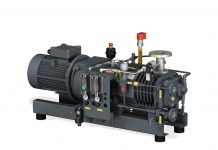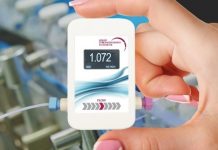REACH came into force on the 1st June 2007 and covers the registration of all materials manufactured or imported into the EU at quantities of 1 tonne or more per year.
The system has been phased in gradually since 2007, with phase 1 (December 2010) covering materials manufactured at ≥1000 tonne / year and highly toxic materials and phase 2 (June 2013) covering substances supplied at ≥100 tonne / year. Phase 3 is the final phase and covers the remaining materials that are supplied at ≥ 1 tonne / year. The deadline for this final phase of registration is 1st June 2018, so organisations that have not yet started the registration process have only 3 years to complete. To comply with REACH it is necessary to identify all chemical substances using a series of analytical tests.
Who REACH applies to:
- Manufacturers and Importers
- Downstream users – Businesses that use chemicals supplied by manufacturers or importers are downstream users
- Distributors and users – Businesses that sell chemicals (distributors) have specific duties to pass information to customers and also pass information to their suppliers
The upcoming REACH deadline will affect a huge number of UK businesses over the next few years, in particular SME’s and speciality chemical companies manufacturing or importing smaller quantities of material will be affected. It is clear that some SMEs do not have enough internal resources to manage the REACH process. The Centre for Chemical and Structural Analysis (CCSA) at the University of Bradford has supported a number of regional companies including SME’s with their REACH submissions by providing cost effective and responsive services in the generation of analytical data to support the process. The Centre has both the equipment, including NMR, Mass Spectrometry and a range of chromatography options, and the expertise to provide high quality data presented in a report suitable for a REACH submission. We are able to provide data ranging from basic ID information, through to analytical data provision in support of sameness packages. In addition, the Centre can also offer bespoke problem solving and analysis for more complex products. We can also offer guidance and advice through our experience and relationship with specialist REACH consultants.
A summary of our services is provided below:
- Basic identity information including public and trade names, Chemical Abstracts Services (CAS) nomenclature and numbers, IUPAC naming and EINECS numbers and molecular and structural formulae including SMILES notation;
- Analytical data provision including NMR, vibrational and electronic spectroscopy (FTIR, Raman and UV-Vis), mass-spectrometry and solid state techniques (X-ray diffraction, differential scanning calorimetry and solid state NMR where required);
- Sameness testing including purity and composition analysis, chiral purity and impurity identification as required in addition to the services listed above.
- We are also able to provide further bespoke testing of more complex substances using a range analytical techniques such as; HPLC, Mass Spectrometry, Vibrational Spectroscopy ,Thermal Analysis, X-ray Diffraction, Microscopy, Particle and Powder characterisation













